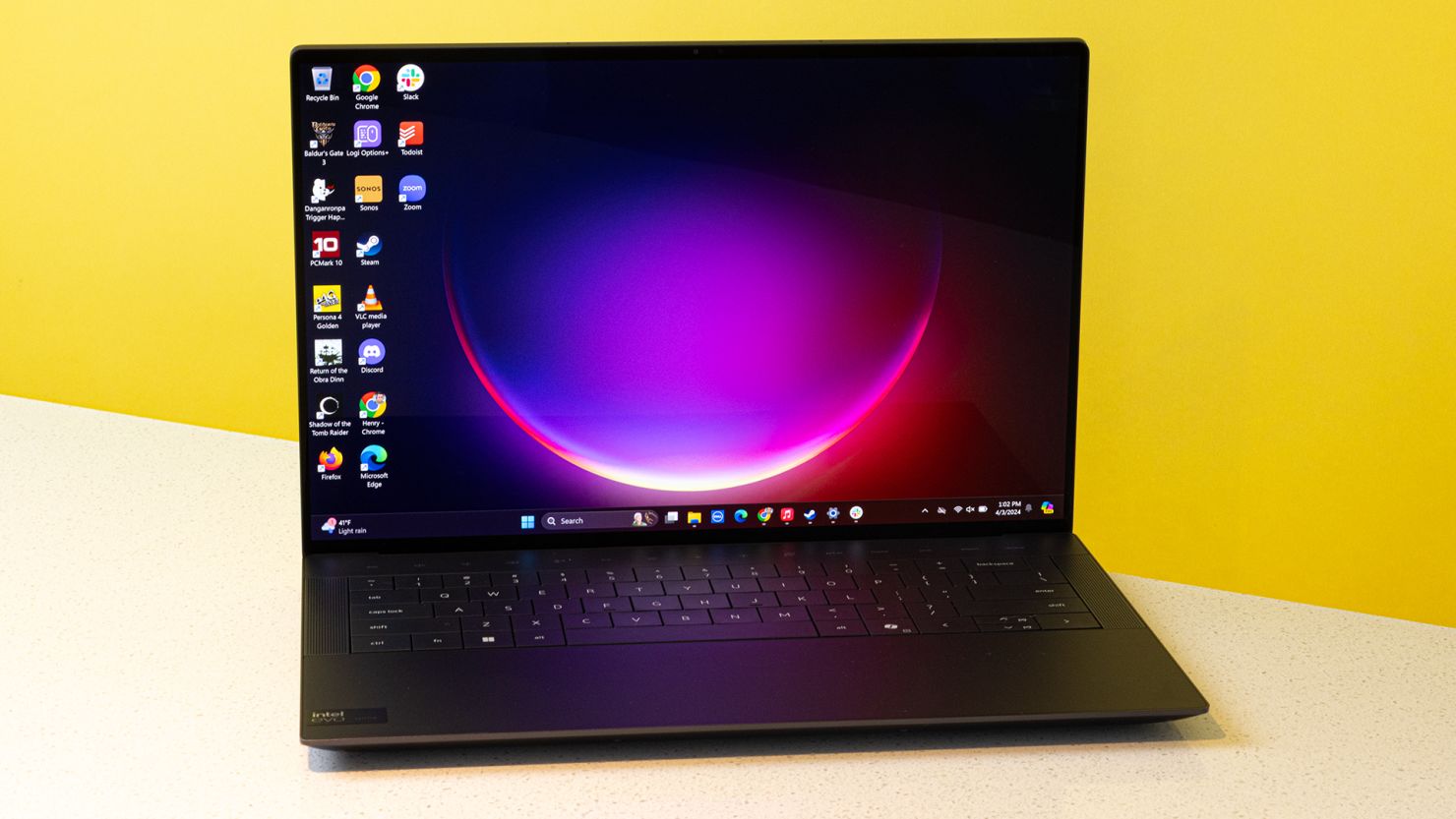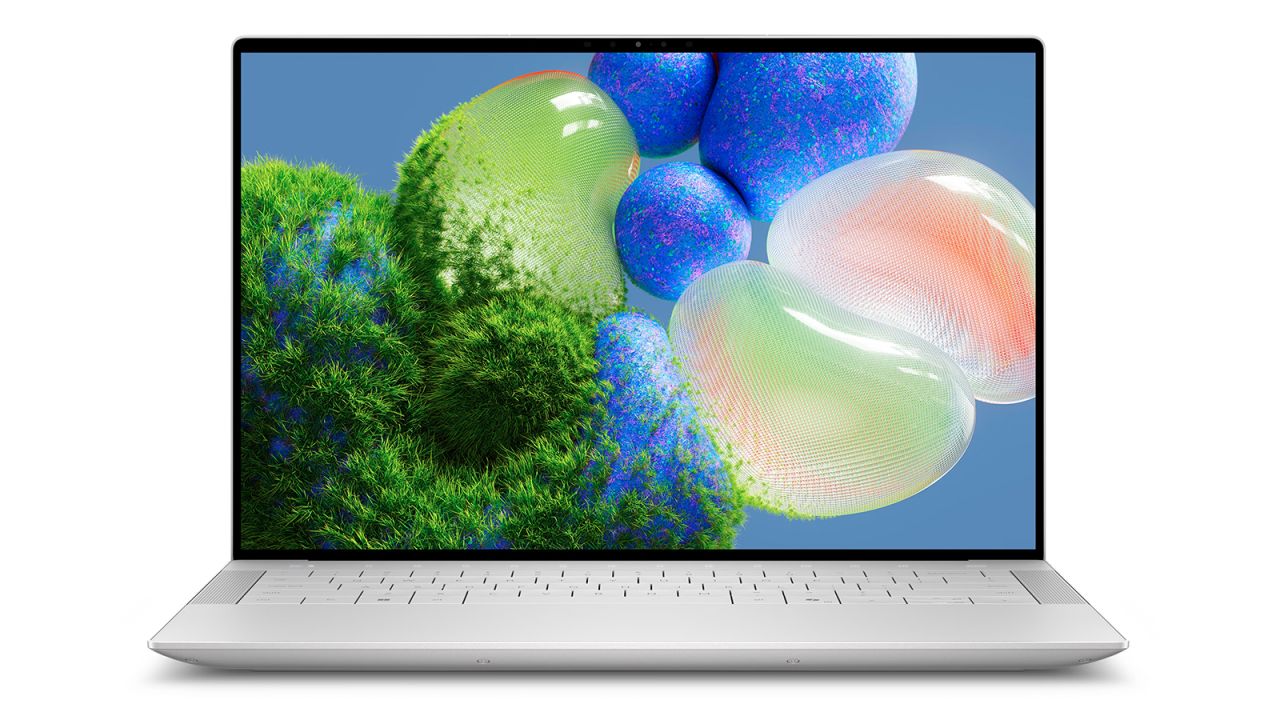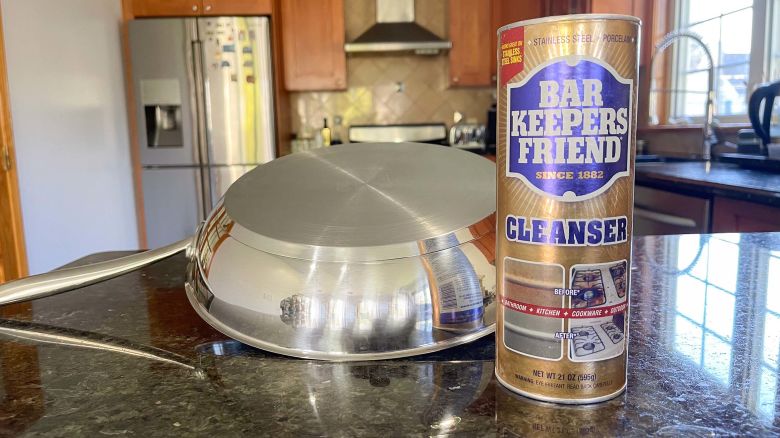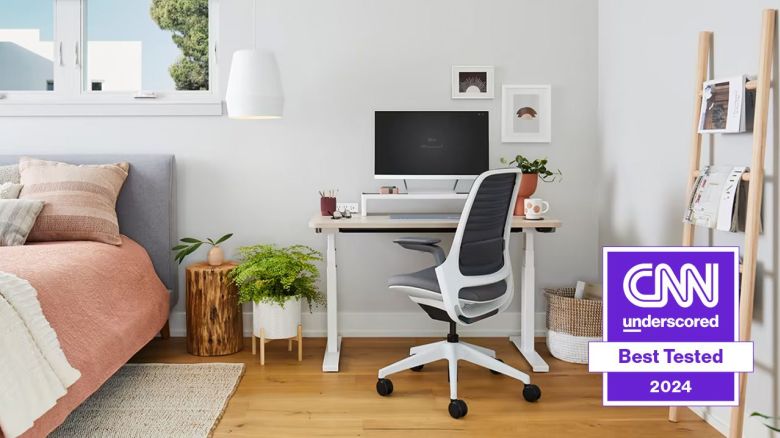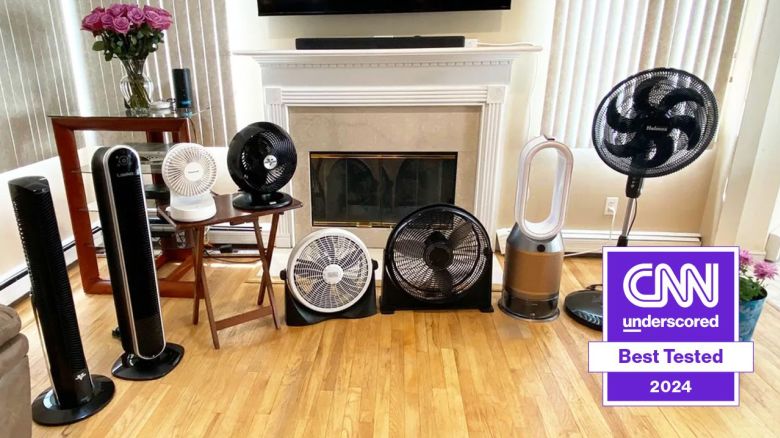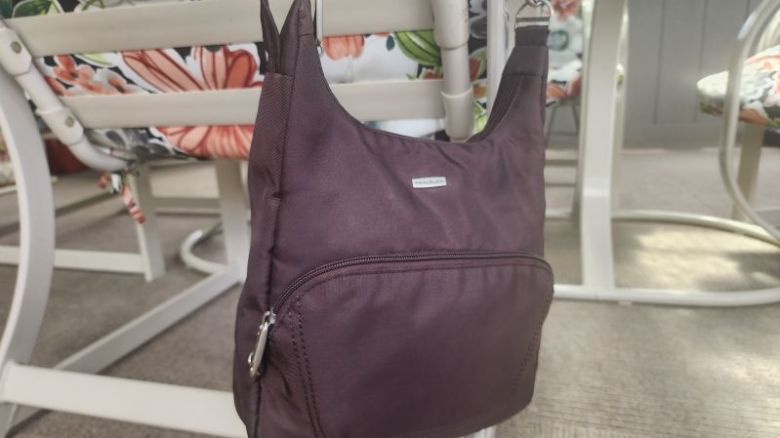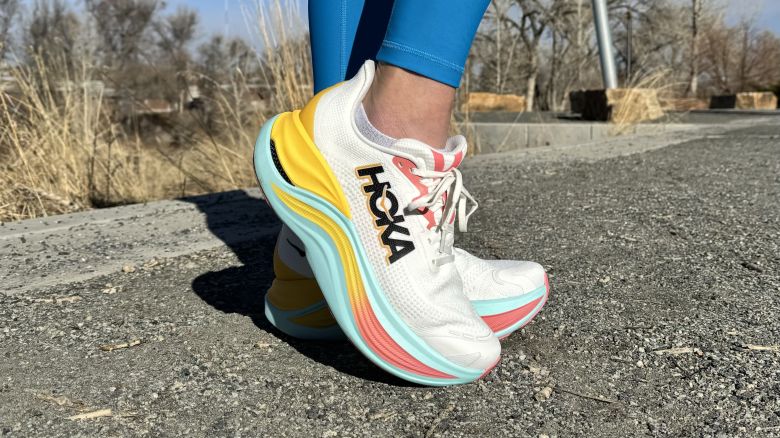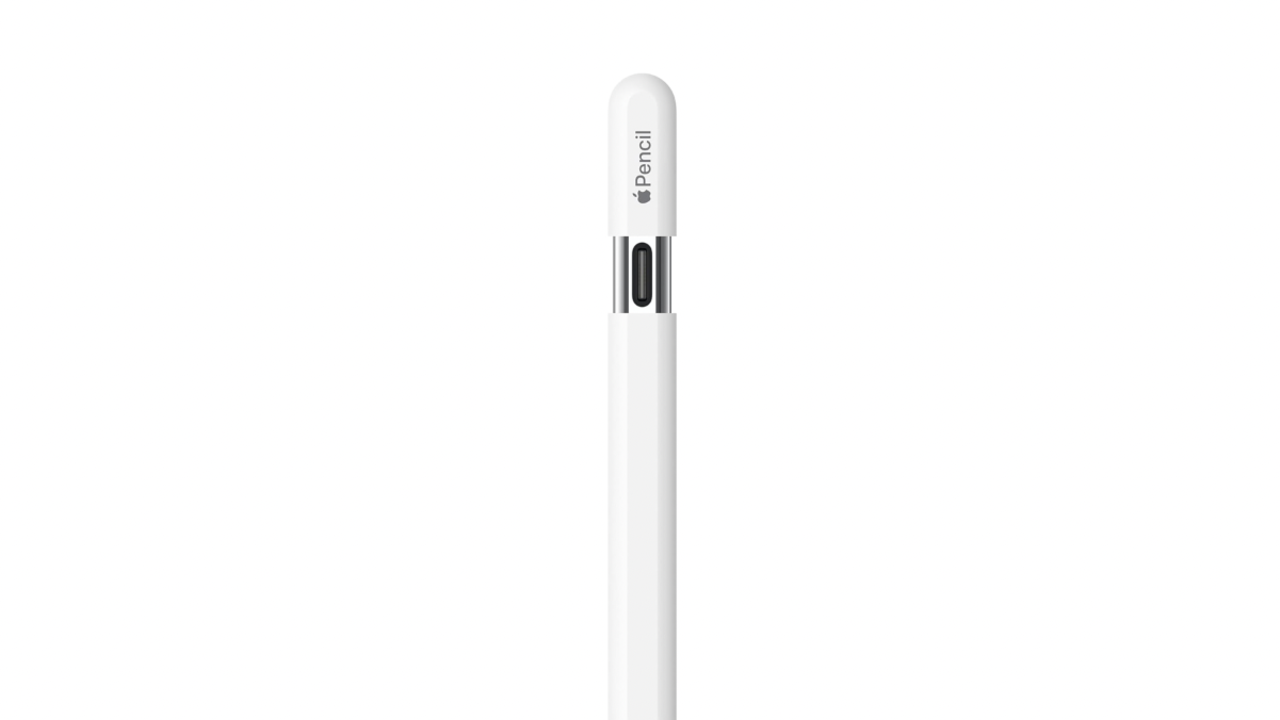The Dell XPS 14 is arguably the most important PC laptop in quite some time, and that’s not only because it succeeds the best Windows laptop and one of the best laptops we’ve tested overall. It’s also one of many new laptops sporting the Microsoft Copilot button that leads you into the hallucinogenic world of generative AI — but that doesn’t matter (yet).
Instead, the XPS 14 means a lot because it’s the flagship offering of the stark redesign Dell’s introducing in its 2024 XPS lineup that rethinks the keyboard and trackpad in drastic ways. Fortunately, much of what we loved about previous XPS laptops has stuck around, including a gorgeous optional OLED display and a thin and light aesthetic. Dell’s also upped its battery life game — though its competitors are no slouches in the longest lasting laptop race. But is the new XPS 14 right for you? Let’s find out.
Long battery life, solid performance and a great screen make the XPS 14 fantastic, but its new keyboard and trackpad may prove divisive.
What we liked about it
Speedy everyday performance
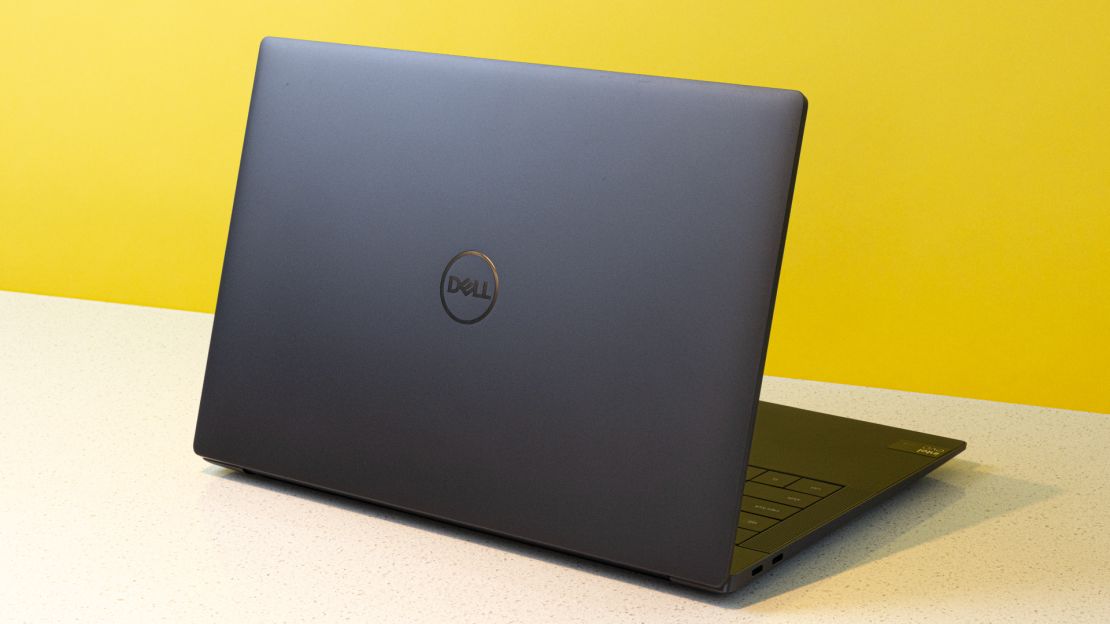
Armed with an Intel Core Ultra 7 processor, the XPS 14 shined as my work and personal laptop, as it juggled dozens of Chrome tabs and a bunch of apps including Discord, Apple Music, Edge, Slack and Steam with apparent effortlessness.
Benchmarks, though, tell an interesting tale. The XPS 14 was outshined by the latest 14-inch MacBook Pro (with a standard M3 chip and half as much memory) on the Geekbench 6 benchmark’s single-core test for everyday tasks. The XPS 14 got its win back on the performance-intensive multicore test, where it also edged out the Asus ROG Zephyrus G14. On the Geekbench 6 Compute test, which measures graphics performance, The XPS 14 landed in smack-dab in the middle of the scores from the Zephyrus and the MacBook Pro. The Ryzen 9 chip’s brawn — combined with its Nvidia RTX 4060 GPU — shined strong in the PC Mark 10 Extended test of overall performance.
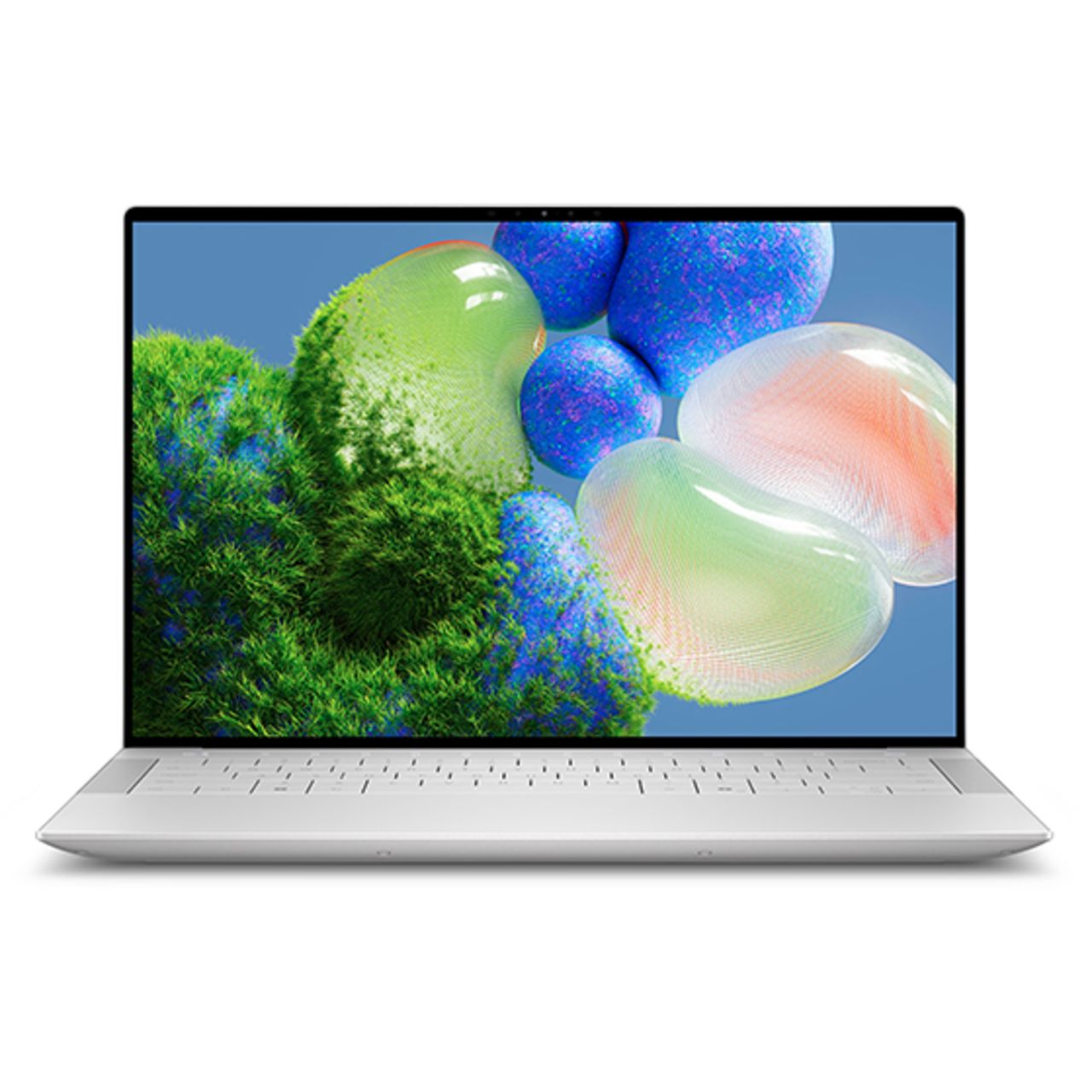
Dell XPS 14
|
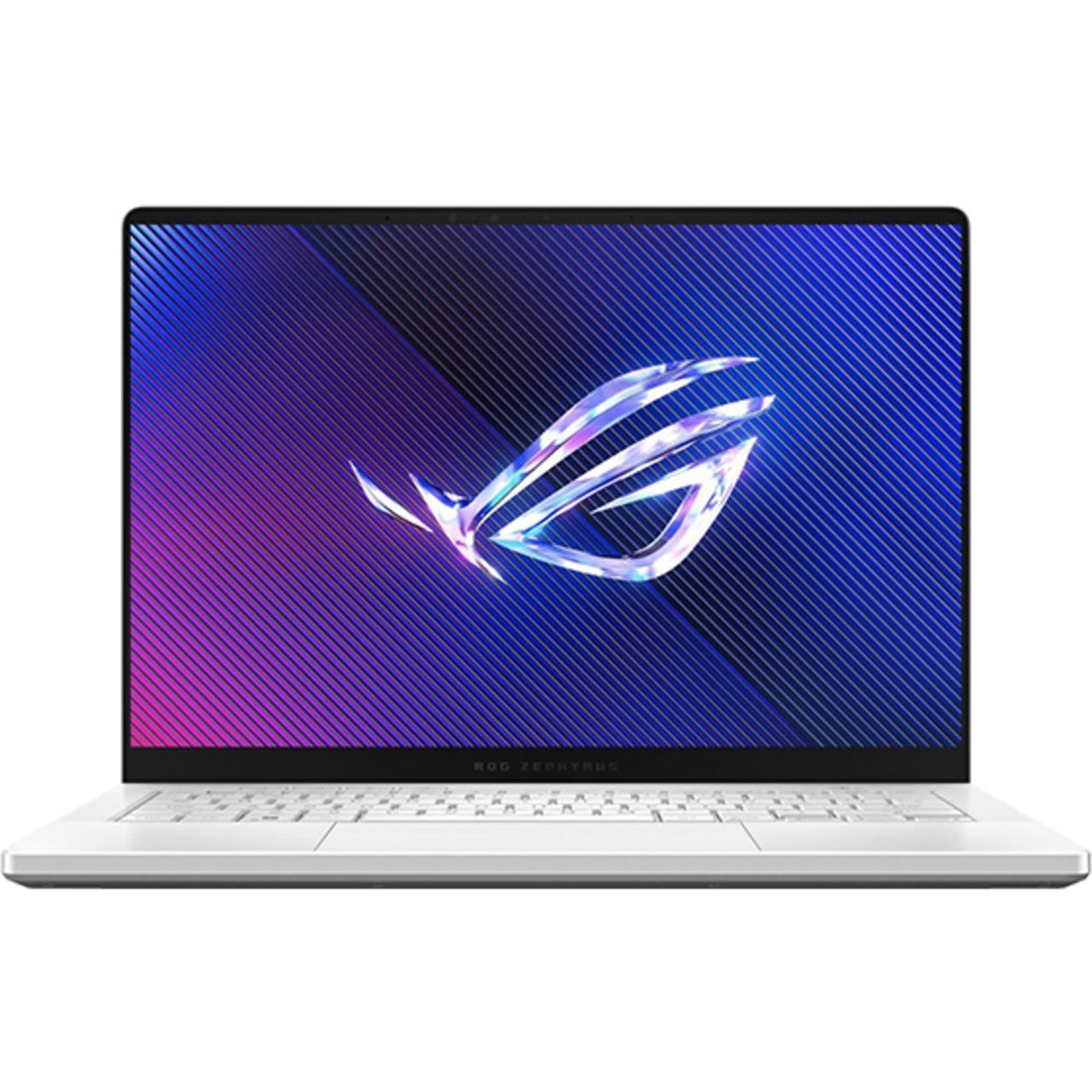
Asus ROG Zephyrus G14
|
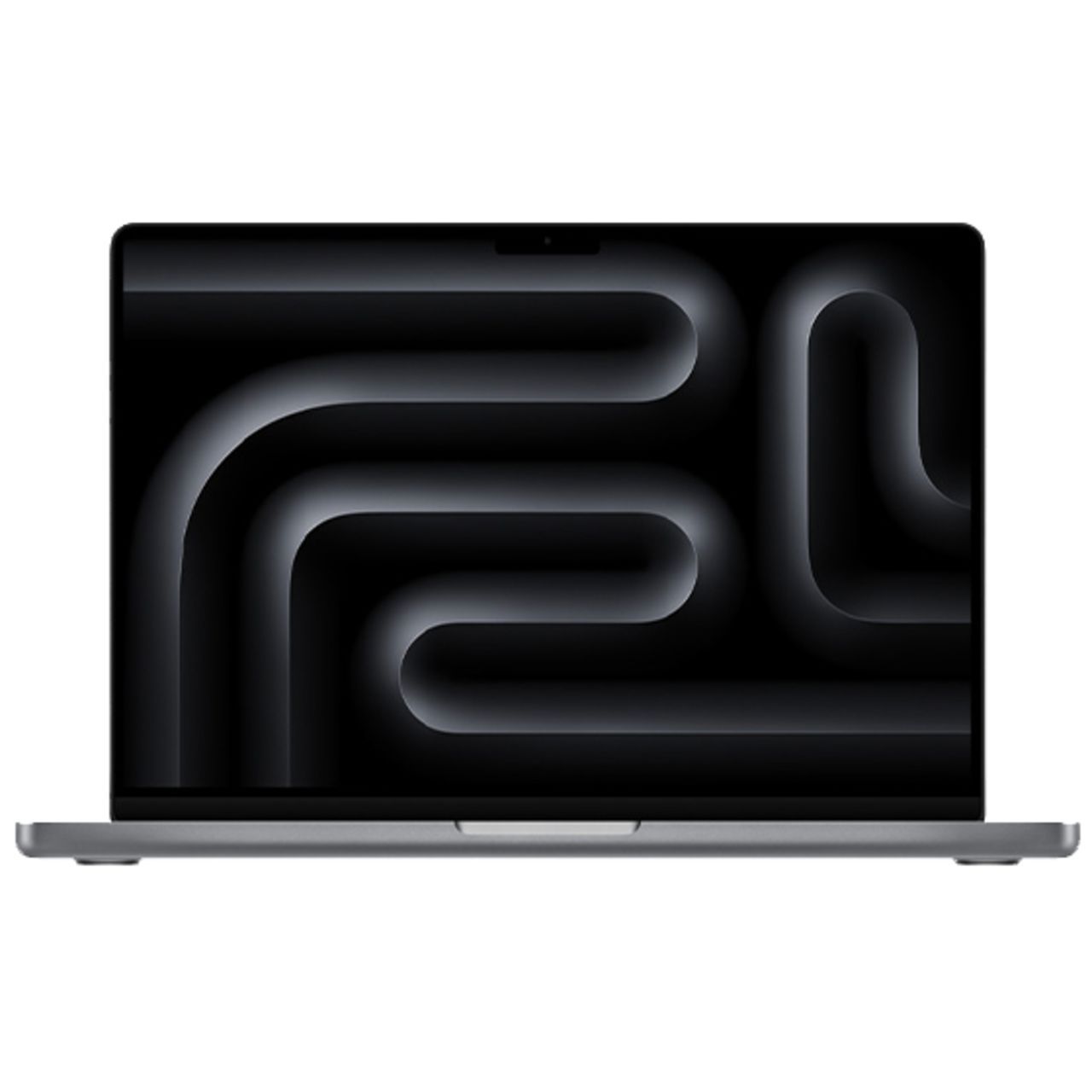
Apple MacBook Pro M3 14-Inch
|
|
|---|---|---|---|
| Processor | Intel Core Ultra 7 155H |
AMD Ryzen 9 8945HS |
Apple M3 with 8-core CPU |
| Memory | 32GB |
16GB |
16GB |
| Geekbench 6 (single-core) | 2,300 |
2,616 |
3,066 |
| Geekbench 6 (multicore) | 13,074 |
12,051 |
11,650 |
| Geekbench 6 Compute (OpenCL) | 66,121 |
96,497 |
30,308 |
| PC Mark 10 Extended | 6,693 |
9,323 |
n/a |
In short, the XPS 14 may not be a speed demon, but this configuration holds its own in head-to-head battle with the best of the bunch.
Stellar display and audio
Watching Netflix’s “3 Body Problem” on the XPS 14’s 3.2K OLED panel (a $300 upgrade from its default 1920 by 1200 option), I noticed strong contrast in the color-saturated virtual world, with the inky black letterbox bars at the top of the screen helping the bright arctic landscape pop. It’s exactly why the laptop’s support for the Dolby Vision HDR video standard matters (make sure to enable HDR under Settings > System > Display > HDR if it’s not working right). Similarly, the atomic bomb testing scene in Christopher Nolan’s “Oppenheimer” offered fiery orange hues that will likely be used to demo great screens like this for years to come.
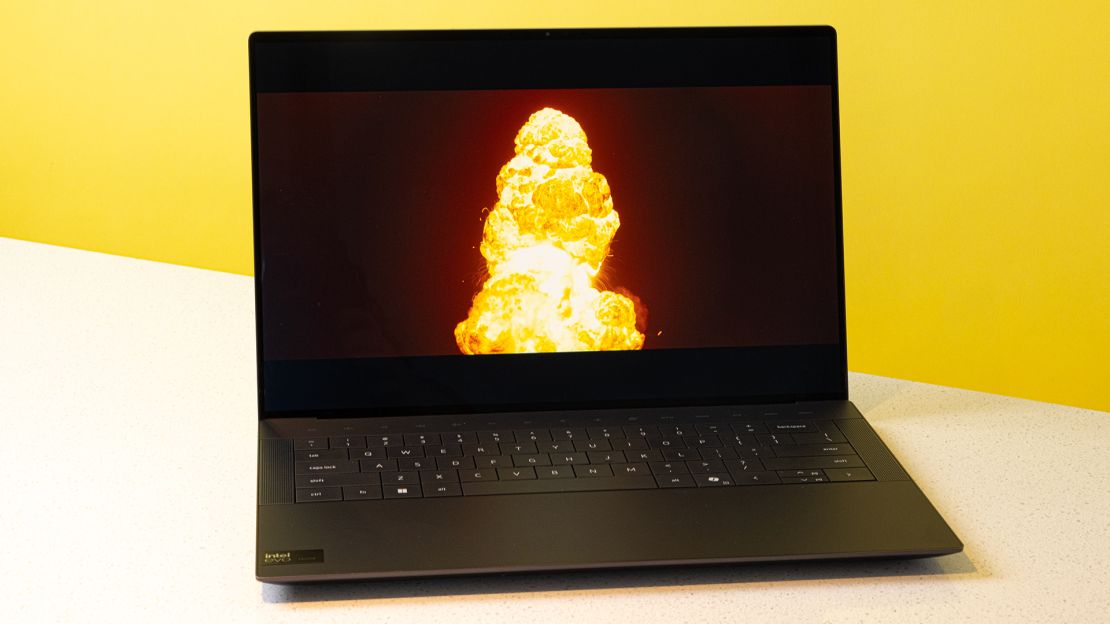
Oh, and unlike the 14-inch MacBook Pro? The XPS 14 doesn’t have a notch that covers up the top middle portion of its panel. Instead, Dell’s built one of the thinnest bezels I’ve ever seen in a laptop, which still manages to fit a decent webcam. Trying it out for photos and Zoom calls, I got results colleagues described as “completely fine,” “pretty solid for an integrated webcam” and “totally usable.” We’ve tested the best webcams if you want one fit for live streaming on Twitch.
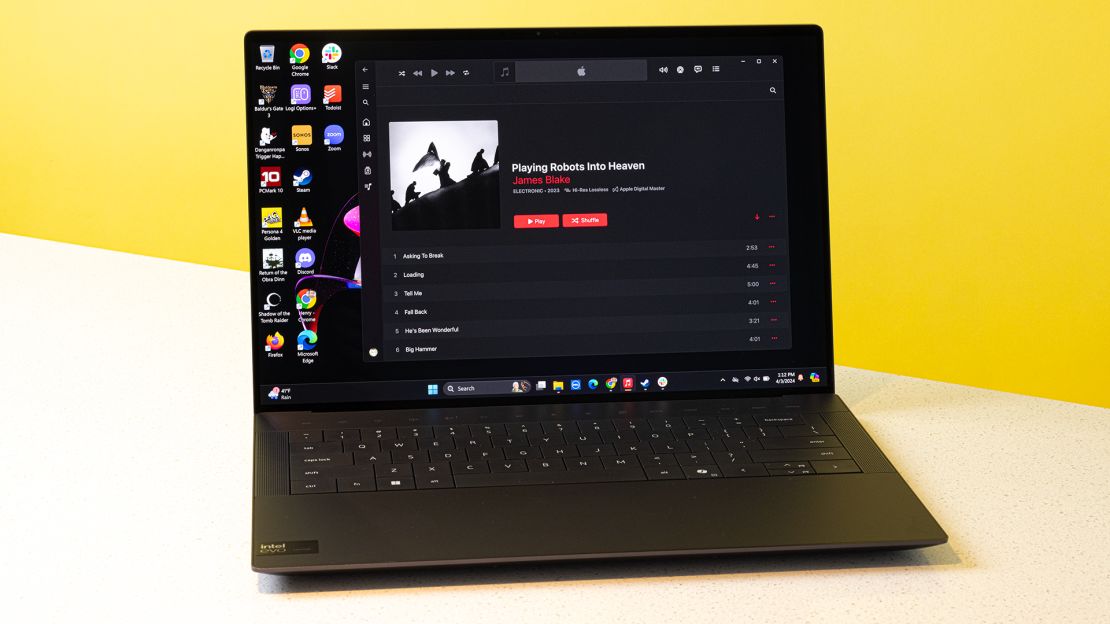
As the XPS 14 bumped James Blake’s electronic music album “Playing Robots Into Heaven,” I admired everything from the soulful high notes from “I Want You To Know” to the bass of “Big Hammer.” My everyday playlist also sounds fantastic on the XPS 14, including the sweet synths and crisp drums of Future’s “Like That.” The XPS 14’s pairs of woofers and tweeters produced a surprising amount of sound for a laptop of this size, thanks in part to both upward- and downward-firing speakers that aim for immersion.
Strong battery life – but not the best
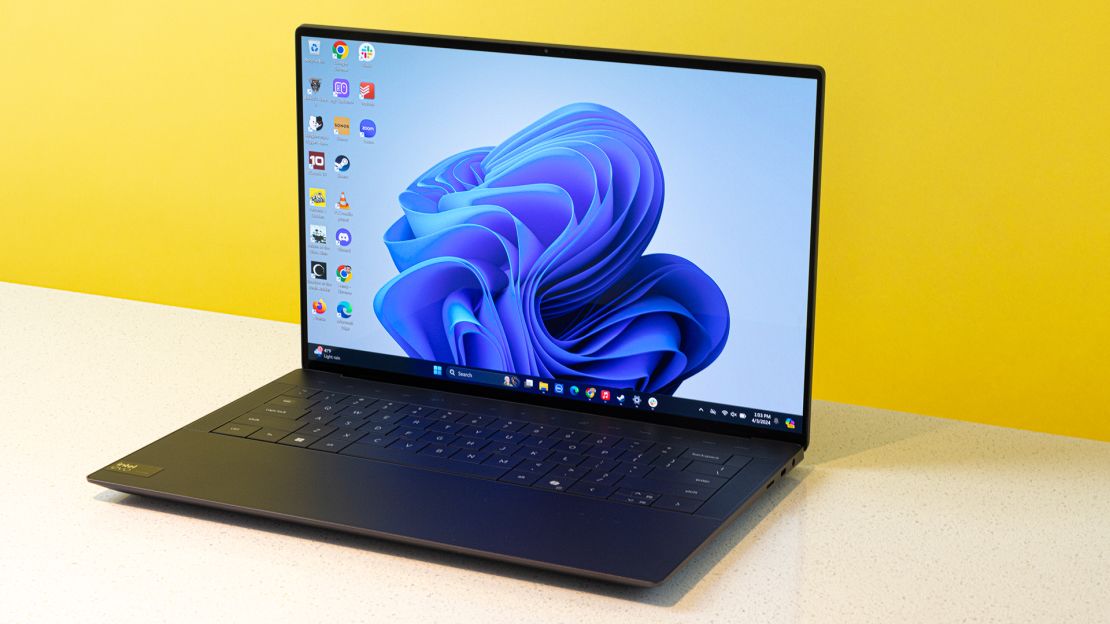

Dell XPS 14
|

Asus ROG Zephyrus G14
|

Apple MacBook Air M3 14-Inch
|
|
|---|---|---|---|
| Battery life (hours:minutes) | 9:25 |
10:33 |
9:55 |
| Display, resolution | 14.5-inch OLED touch display, 3200 x 2000 |
14-inch OLED display, 2880 x 1800 |
14.2-inch Liquid Retina XDR, 3456 x 2234 |
The MacBook Pro and Zephyrus’ endurance is more impressive when you realize they’re a hair thinner and 0.4 to 0.5-pounds lighter than the XPS 14.
Customizable for decent gaming performance
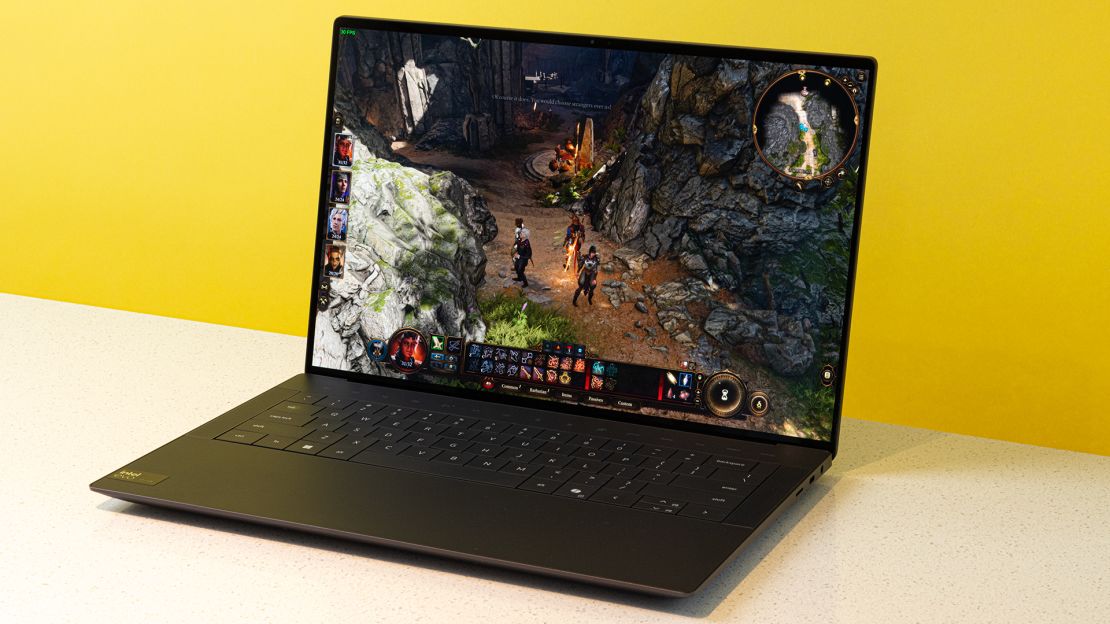
While you can game on XPS 14, you may need to modify your expectations when spending an extra $300 for the GPU-equipped configuration I tested. While calmer Baldur’s Gate 3 gameplay ran between 41 and 57 frames per second (at quad HD resolution and Ultra settings), a chaotic battle scene hamstrung the RTX 4050, kicking the game to below our playable threshold (30 fps) at those same settings. That same scene, though, looked a lot better once I downgraded resolution to just above full HD. The ROG Zephyrus G14 didn’t have trouble with this game at the higher resolution, but that’s a gaming laptop with a superior GPU. The basic M3-equipped MacBook Pro didn’t run this game well at all.

Dell XPS 14
|

Asus ROG Zephyrus G14
|

Apple MacBook Pro M3 14-Inch
|
|
|---|---|---|---|
| Shadow of the Tomb Raider (~1080p, Highest graphics) | 82 fps |
126 fps |
34 fps |
| GPU | Nvidia GeForce RTX 4050 |
Nvidia GeForce RTX 4060 |
10-core GPU |
The XPS did perform decently on the less-recent Shadow of the Tomb Raider benchmark, beating the M3-based MacBook Pro, and falling to the ROG Zephyrus G14.
This keyboard feels great, and the XPS stays cool
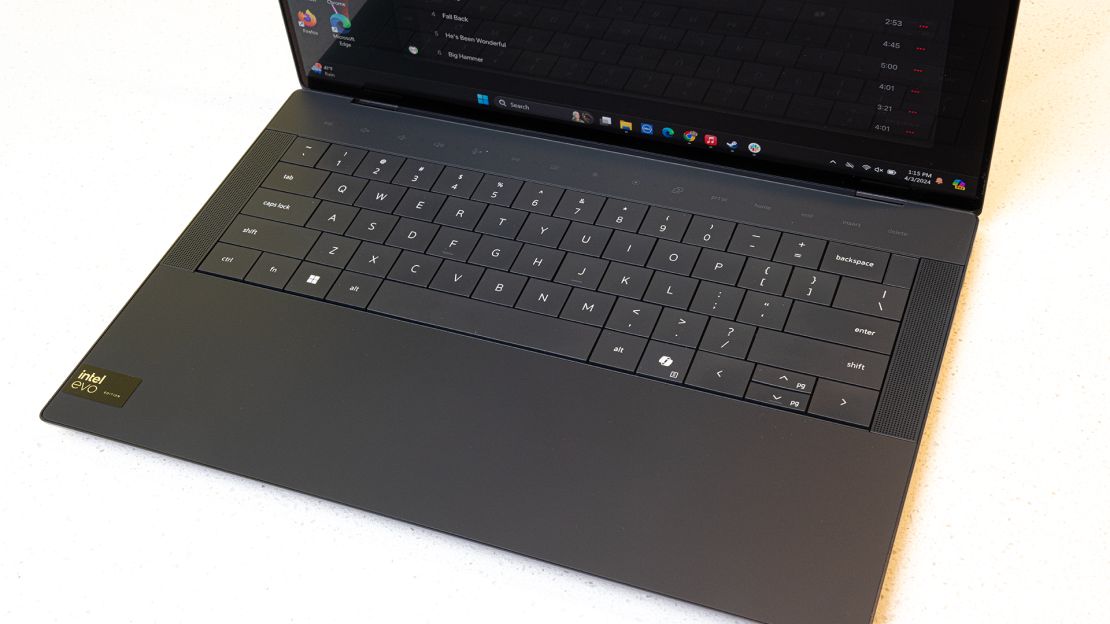
As much as I will bemoan the lack of physical function keys and the new-look trackpad, I can’t deny that the XPS 14 packs a great keyboard. Each key provides great tactile feedback, which creates a joyful typing experience. While I personally wouldn’t have designed these keys to all be adjacent to each other (I’m used to having the small gaps between keys), it’s something I got used to quickly.
Also, Dell’s using that space where the function row keys went for good, as the lack of physical keys in that top position enables more room for its thermal cooling solutions – according to Dell’s product review guide. I felt some of that fix in my testing, as the XPS 14 managed to stay mostly cool —, unlike the similar-looking XPS 13 Plus that got “very warm” in our laps. At worst, I only felt a slight and acceptable amount of heat from its underside, and that was with plenty of apps open, including Netflix, Zoom, Slack, Chrome and Edge.
What we didn’t like about it
A futuristic design that goes too far
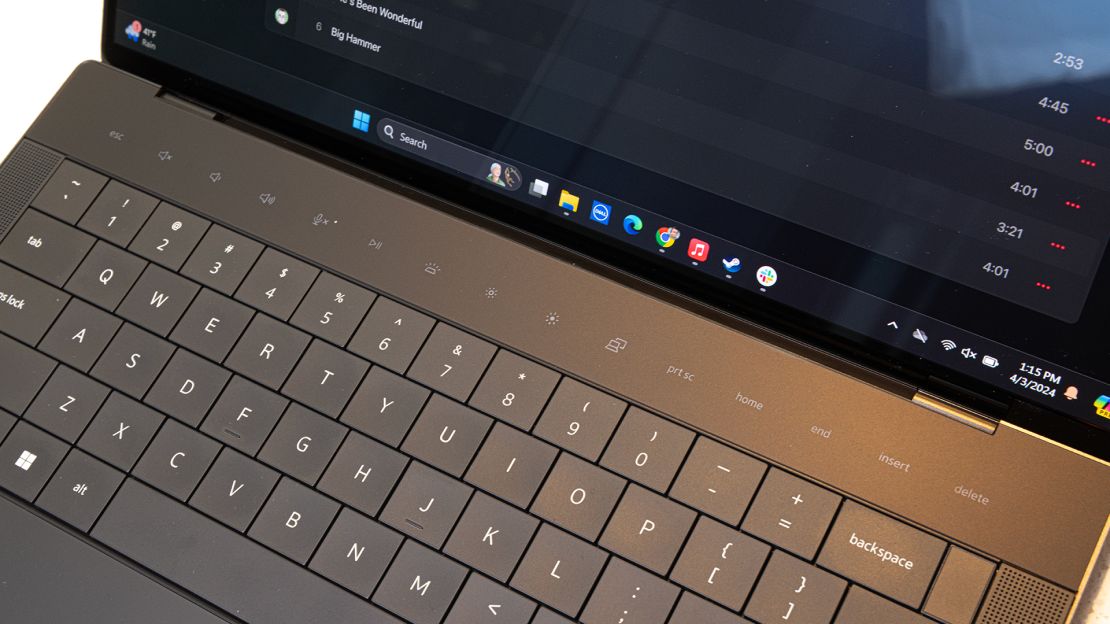
When closed, the XPS 14 looks pretty traditional, as this metallic laptop is pretty portable and luxe. But when most people open up its lid, they may be surprised by the absence of the traditional physical F1 to F12 function keys. Those keys that you might never really think about, which double as display brightness and media playback controls, are gone (just as with the XPS 13 Plus), replaced by a capacitive stretch of sensors with lit-up icons.
You know, buttons without buttons. By default, this row gives you controls for volume, mute, play/pause, brightness and other system functions such as print screen. If you need those numbered function keys, you’ll hold down the Function key next to the Windows key, and possibly tap Escape to lock Function mode in. Confusing, right?
I don’t want to come across as averse to change, but I’ve found this to be a self-inflicted error on Dell’s part – because I don’t see much of an upside. During my time testing the XPS 14, this new row of fake keys leads me to mistakes, such as accidentally muting “3 Body Problem” when I meant to hit the Escape key to move from full-screen view. A lack of real buttons meant my digit activated a sensor while trying to find and click a physical key.
This is all too reminiscent of Apple’s Touch Bar boondoggle, where it replaced those function keys with a strip of an OLED touch screen for a few years. I hope Dell doesn’t take that much time to reverse course here. While glowing text that can change looks cool, most laptop keyboards’ function keys let you see both options. Now, you must remember to toggle with the function key to see all of your choices.
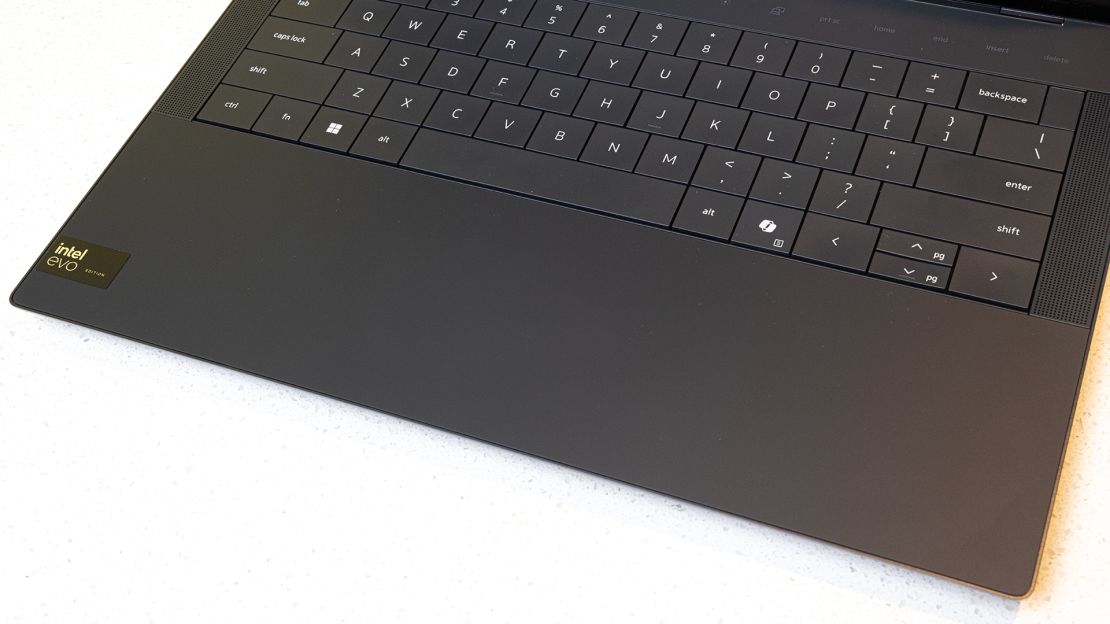
Additionally, the XPS doesn’t have a trackpad as much as it has a blank space under the keyboard. From the distance of the Alt key on the left to the Copilot key on the right, you get a giant trackpad for your swipes and taps and clicks. It all works as it should, but I’m not especially fond of the lack of visual indicators of the edges of that trackpad. And it might be too wide, because I definitely activated it by accident. Maybe it becomes second-nature at a certain point, but again, it feels like Dell’s trying to fix something that isn’t broken.
I would have really loved to see actual usability improvements in this XPS 14, such as an indentation that helps you open it from the closed position with just one hand. MacBooks, for example, all have a little divot for just this purpose. Again, this feels like Dell’s team was almost too focused on making the new XPS lineup visually attractive.
A bit short on ports
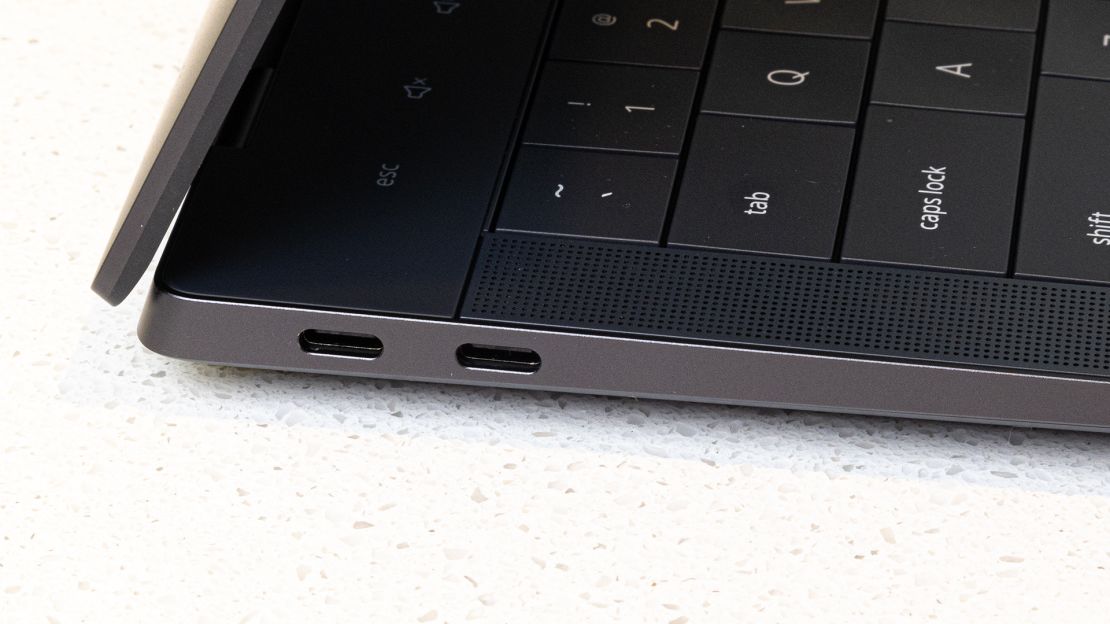
While I respect the XPS 14’s trio of Thunderbolt 4 USB-C ports (you only need one to plug in two external screens), those reversible slots, a microSD memory reader and headphone jack leave me wanting more. Both the Zephyrus G14 and MacBook Pro offer dual USB-C ports, plus HDMI, and the former also packs in two USB-A ports.
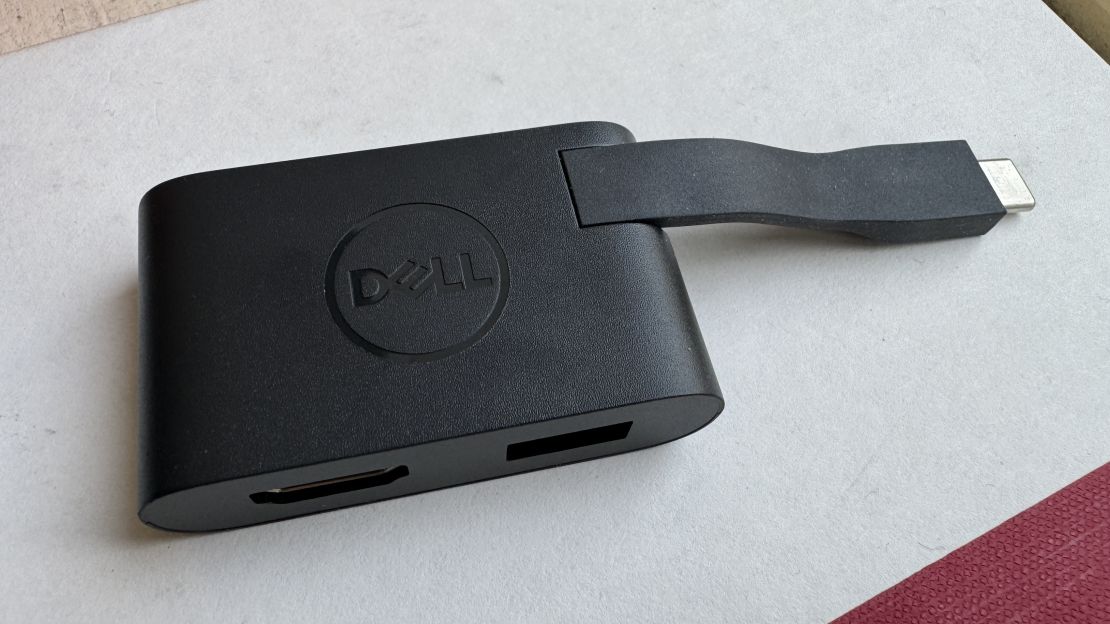
Yes, Dell throws in a USB-C to USB-A and HDMI adapter, doing more for USB-A than Apple does. But by building good ports into the internal chassis of a laptop, you’re allowing users to forget the best USB-C hubs and adapters at home without it becoming a nuisance. I would know, as I actually forgot this USB-C dongle at home when I brought the XPS into the office last week.
Its price is a little steep compared to the competition
The XPS 14 we’ve reviewed is an expensive $2,399, many hundreds more than the $1,599 Asus ROG Zephyrus G14 and $1,999 14-inch M3 MacBook Pro configs we tested. Check out our roundup of the best affordable laptops if these prices are too steep.
How does one explain this discrepancy? While both the XPS 14 and Zephyrus G14 feature OLED panels, only Dell gives you a touch screen. Some may also want to pay to “ooh” and “ah” at the light-up Function key row. But when the Zephyrus and MacBook Pro hold their own in the above comparisons, that extra $400 to $800 is harder to explain.
How it compares on specs
| Processor | Intel Core Ultra 7 155H | Ultra 9 185H |
AMD Ryzen 9 8945HS |
Apple M3 / M3 Pro / Apple M3 Max with up to 16-core CPU |
|---|---|---|---|
| Graphics | Intel integrated Arc graphics | Nvidia GeForce RTX 4050 |
Nvidia GeForce RTX 4060 / 4070 |
Up to 40-core GPU |
| Memory | 16GB | 32GB | 64GB |
16GB | 32GB |
8GB | 16GB | 24GB | 36GB | 48GB | 64GB | 128GB |
| Storage | 512GB to 4TB SSD |
1TB SSD |
512GB to 8TB SSD |
| Dimensions | 12.6 x 8.5 x 0.7 in. |
12.2 x 8.7 x 0.6 in. |
12.3 x 8.7 x 0.6 in. |
| Display, resolution | 14.5-inch Infinity Edge non-touch display, 1920 x 1200 | 14.5-inch OLED InfinityEdge touch display, 3200 x 2000 |
14-inch OLED ROG Nebula display, 2880 x 1800 |
14.2-inch Liquid Retina XDR, 3024 x 1964 |
| Weight | 3.7 lbs. (FHD+), 3.8 lbs. (OLED) |
3.3 lbs. |
3.4 lbs. |
| Webcam | 1080p camera with Window Hello support |
1080p camera with Window Hello support |
1080 FaceTime camera |
| Ports | Headphone jack, 2x USB-C, microSD memory reader, and USB-C to USB-A/HDMI adapter included |
Headphone jack, HDMI 2.1, 2x USB-A, 2x USB-C, microSD memory reader, power adapter port |
Headphone jack, HDMI 2.1, 2x USB-C, SD memory reader, MagSafe charging |
| Price | From $1,499 | From $1,599 | From $1,599 |
Bottom line
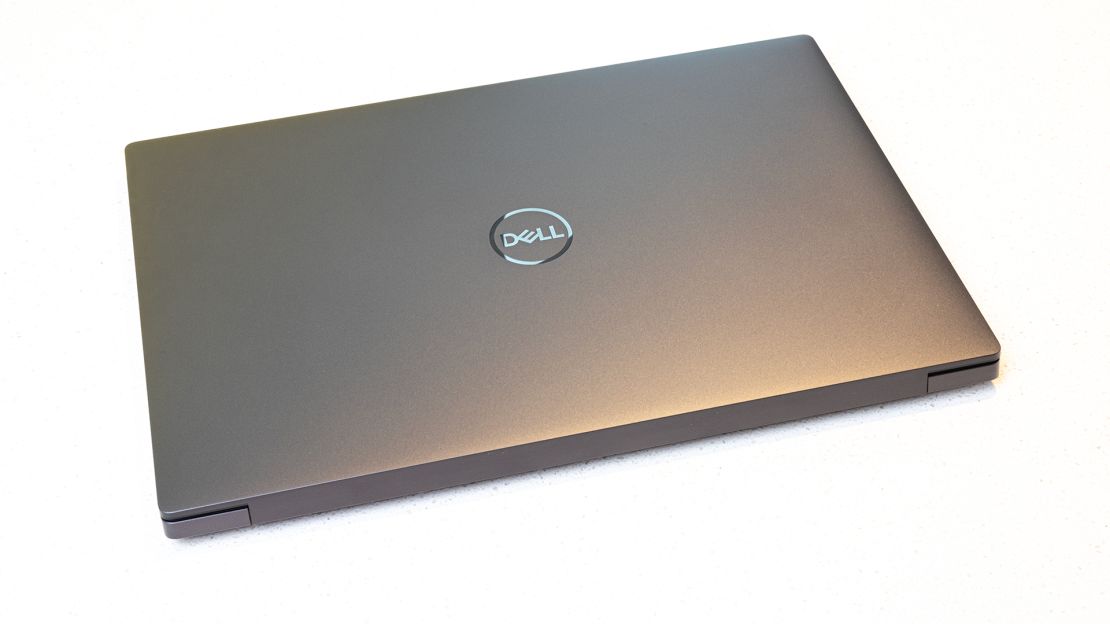
The XPS 14 is an excellent laptop, but some of its changes may rankle those who were happy with the status quo. For typing, streaming, working and rocking out, the XPS 14 will satisfy many needs, though it gets pricey quickly if you want the best screen or some gaming chops.
I’ll be curious if the touch-based Function row keys and seamless trackpad will last, as Dell might not have the vocal online critics that pushed Apple to reconsider the Touch Bar. But while the XPS 14 may not be the obvious pick for best Windows laptop it always was, it’s still a damn fine option.
